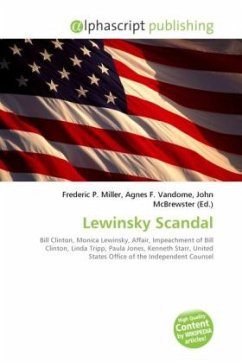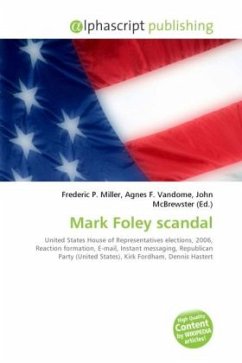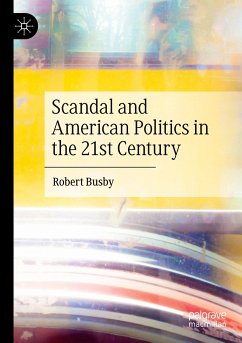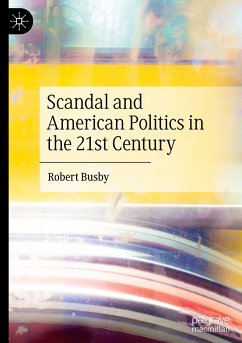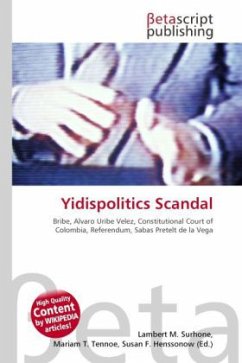
Mensalão Scandal
Versandkostenfrei!
Versandfertig in 6-10 Tagen
23,99 €
inkl. MwSt.

PAYBACK Punkte
12 °P sammeln!
The Mensalão scandal took place in Brazil in 2005 and threatened to bring down the government of Luiz Inácio Lula da Silva. Mensalão is a neologism and variant of the word for "big monthly payment" (salário mensal or mensalidade). The scandal began when on June 6, 2005, the Brazilian Congressional Deputy Roberto Jefferson told the Brazilian newspaper Folha de São Paulo that the ruling Labour's Party (PT) had paid a number of Congressional deputies thirty thousand reais (around US$12,000 at the time) every month in order to vote for legislation favored by the ruling party. The funds were s...
The Mensalão scandal took place in Brazil in 2005 and threatened to bring down the government of Luiz Inácio Lula da Silva. Mensalão is a neologism and variant of the word for "big monthly payment" (salário mensal or mensalidade). The scandal began when on June 6, 2005, the Brazilian Congressional Deputy Roberto Jefferson told the Brazilian newspaper Folha de São Paulo that the ruling Labour's Party (PT) had paid a number of Congressional deputies thirty thousand reais (around US$12,000 at the time) every month in order to vote for legislation favored by the ruling party. The funds were said to originate from state-owned companies' advertising budgets, funneled through an advertising agency owned by Marcos Valério. Many key advisers to president Lula resigned, while several deputies were faced with the choice of resignation or expulsion from congress, though the president himself went on to be re-elected in 2006. The scandal also sparked unproved charges of illegal campaign contributions from Cuba and the Revolutionary Armed Forces of Colombia and political connections to the assassination of Celso Daniel, mayor of the city of Santo André.



